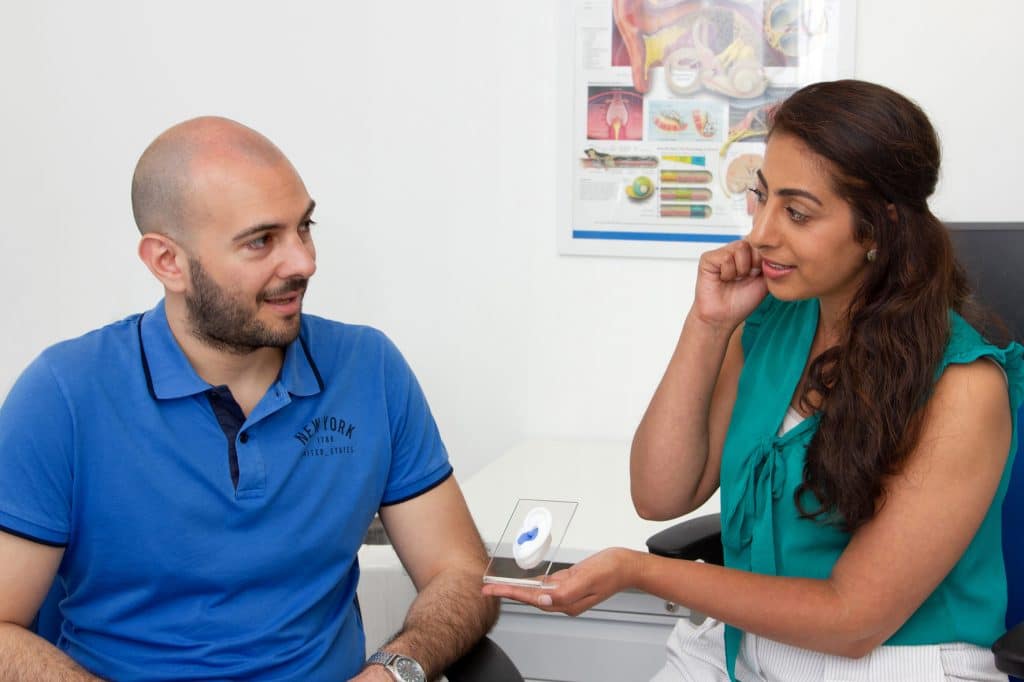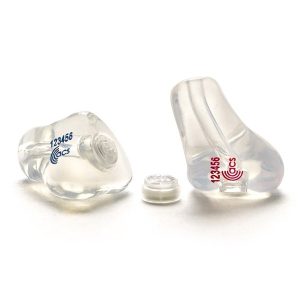Understanding Noise-Induced Hearing loss: Causes, Prevention, and Management
In today’s fast-paced world, noise has become an unavoidable part of daily life. Whether it’s the bustling city streets, loud concerts, or the constant hum of machinery, exposure to excessive noise levels has become a concern for our hearing health. Noise-induced hearing loss (NIHL) is a type of hearing impairment that results from prolonged exposure to loud noises. This article delves into the causes, prevention, and management of noise-induced hearing loss.

Causes of Noise-Induced Hearing Loss
Noise-induced hearing loss occurs when the delicate hair cells within the cochlea of the inner ear are damaged due to exposure to loud sounds. These hair cells are responsible for converting sound waves into electrical signals that the brain can interpret as sound. When exposed to loud noises, the hair cells can become overworked, leading to their gradual deterioration and eventual permanent hearing loss.
Factors Affecting NIHL
Loudness levels
Decibel (dB) is a measure of sound level and normal conversation is around 60dB. An alarm clock ringing can reach around 80dB and motorcycles can reach around 120dB. Anything above 85dB is classed as harmful.
Duration of Exposure
The longer the exposure to loud noises, the greater the risk. Short bursts of extremely loud noise, such as gunfire or explosions, can also cause immediate damage and also trauma to the eardrum.
Frequency of Noise
High-frequency sounds, like those in a busy construction site, can be particularly damaging to the hair cells.
Schedule your audiology clinic appointment now
We offer same day and late appointments, if you can't come to us, it may be possible for us to come to you.
Protect and Prevent NIHL
Noise-induced hearing loss is a growing concern in today’s noisy world, affecting individuals across all age groups. Understanding the causes, prevention methods, and management strategies for NIHL is crucial to safeguard our hearing health. By taking proactive measures to protect our ears from loud noises and seeking appropriate interventions, we can minimise the impact of noise-induced hearing loss on our quality of life. The following can help preserve your hearing for longer:
Ear Protection
Wearing earmuffs or earplugs in noisy environments can significantly reduce the risk of NIHL. There are different types of earplugs available. Custom earplugs can come with filters and allow more personalised attenuation of noise.
Volume Control
When listening to music through headphones or attending concerts, keep the volume at a reasonable level and take breaks to allow your ears to rest.
Limit Exposure
Minimise the time spent in noisy environments whenever possible. Take breaks to give your ears a chance to recover.
Noise-Cancelling Devices
Consider using noise-cancelling headphones in environments with constant background noise, as these can reduce the need to increase the volume to drown out external sounds.
What type of earplugs are available?
These are soft foam earplugs that can be rolled and inserted into the ear canal. They expand to fit the ear and create a seal that helps reduce noise. Disposable foam earplugs are affordable and widely available, making them a popular choice for many professionals, including dentists and hygienists.
Reusable silicone earplugs are made from flexible silicone material that can be easily inserted and removed from the ear. They can be washed and reused, making them a cost-effective option for individuals who need hearing protection regularly.
Custom-moulded earplugs are individually designed to fit the contours of your ear. They are typically made by taking impressions of your ears, which are then used to create earplugs that offer a personalised fit. Custom-moulded earplugs provide excellent comfort and noise reduction, making them a great choice for professionals who need consistent and reliable hearing protection.
Filtered earplugs are designed to reduce noise while allowing certain frequencies, such as speech, to be heard clearly. These earplugs are beneficial in environments where communication is important. They can help dentists and hygienists communicate with patients and colleagues while still protecting their hearing from loud noises.
These advanced earplugs use electronic technology to actively cancel out or reduce specific types of noise. Some models allow users to adjust the level of noise reduction or even amplify quieter sounds, making them versatile for dental professionals who need to hear certain sounds while blocking out others.
Why choose Pinnaclear for earplugs?
- We offer a range of ear protection options
- Custom earplugs can be made in your colour choice
- We offer cord attachments
- Custom earplugs for gigs are reusable and washable
- Custom earplugs can have different filters offering different noise reduction levels.
Hear Easy With Our Range of Audiology Treatments
Tinnitus Management
We can help with the management of troublesome tinnitus.
earwax removal
We have earplugs for every need, including sleep, motorcyclists, swimming and music.
Noise exposure and your hearing.
We live in an increasingly noisy environment but the general hubbub of noise around us isn’t usually damaging to our ears. We rely on little hair cells in the cochlea part of the inner ear to convert sound into electrical impulses and when we are exposed to louder noise than our ears can handle, the hair cells are damaged resulting in a hearing loss and quite often tinnitus, too. Therefore, when sound exceeds normal listening levels for a considerable length of time, it can have irreversible effects on our inner ear.
Decibel (dB) is a measure of sound level and normal conversation is around 60dB. An alarm clock ringing can reach around 80dB and motorcycles can reach around 120dB. Anything above 85dB is classed as harmful.
How to prevent noise-related hearing loss.
- Limit your exposure to loud sounds
- Turn down personal listening devices or get some custom made earphones to connect to your existing device for a clearer listening experience.
- Wear ear protection
If you feel your hearing has deteriorated due to exposure to loud sounds or if you feel that you would like help managing any tinnitus (ringing in your ears). Get in touch for some open and clear advice today.
Protecting your ears is as easy as 1,2,3
1. Get in touch
We will arrange an appointment to check your ears are healthy and clear of wax
2. Impression taking
We will discuss your ear protection options and take impressions of your ears
3. Fitting
We can either send the new ear protection directly to you or advise you on how best to insert the moulds one-to-one.

